Are You Courageous Enough (To Be a Freelance Writer)?
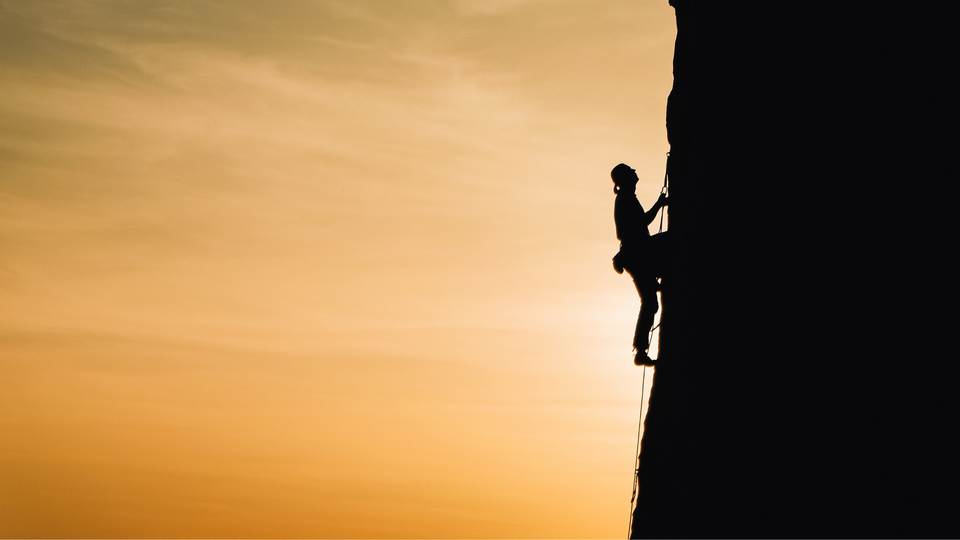
It was a wet, windy Sunday afternoon, and my husband and I were poking through the cupboards trying to decide what to have for lunch. I was excited when I discovered an unopened jar of Picante sauce that I'd forgotten we had.
Now, for those of you who are unfamiliar with Picante sauce, it's kind of like salsa. It's got a tomato base with onions and other good stuff, which usually includes either chili or jalapeno peppers.
But my husband (who is not a fan of spicy food) looked at it with horror and asked "do you really have enough courage to eat that?"
I laughed. But it made me start wondering.
What is courage, exactly?
Is Courage Doing Scary Things?
Is it like what Leone Katekar did when she biked ... all by herself ... right through South America, right down to the southernmost tip of Tierra Del Fuego?
Leone wrote a book (When We Are Not Afraid - affiliate link)) about her experiences. What she did is a great example of doing something that most people would consider scary.
Other kinds of scary things might be telling the truth when you know you'll be punished for it. Or standing up to a bully when it's highly likely you're going to get punched on the nose or laughed at on social media.
But that kind of courage can also include pushing yourself well out of your comfort zone, like Leonie and her bike ride. Especially when, at the end, you're doing things that you once thought were impossible.
But what about actions that aren't scary to you, but look scary to others?
Not that long ago, I saw a young teenager riding his bike towards me down the path I was walking on.
There's nothing really remarkable about that. I see people riding bikes there all the time. What caught my attention was the lack of hands on his handlebars. Instead, his arms were folded nonchalantly across his chest.
Now, when I was a kid, we used to have a saying that went something like,
"Look Ma! No hands! Look, Ma! No teeth!"
So was this young lad being courageous? Or was he just a kid enjoying the feeling of freedom that riding with no hands brings?
Is Courage A Kind Of Resilience?
Winston Churchill was Prime Minister for the United Kingdom during World War II. Not only were those dark times, but he also struggled with depression.
He once said ...
"Success is not final. Failure is not fatal. It is the courage to continue that counts."
For him, courage was the same thing as commitment and continuing on no matter what happens.
As a freelance writer who is working to build a portfolio of written work AND get paid for it, this is highly relevant.
Keeping on keeping on is what gets us to success in the end.
For example, my husband and I recently visited the old gold mining town of Walhalla in Victoria, Australia. For eight long years, miners sweated their way through solid rock ... and found nothing.
And no gold meant no dividends for the people who had invested in the mine.
But ... in the next 18 months they struck it rich. They found enough gold to recover all their previous expenditure PLUS a whole lot more. If you'd been one of the early investors, you would've received a massive 10,240% return on your investment.
Eight years is a very, very long time to get a return on all that hard work. But they stuck with it and it was worth it in the end.
Need I say more about why it's important to keep trying when it comes to writing and getting paid for it?
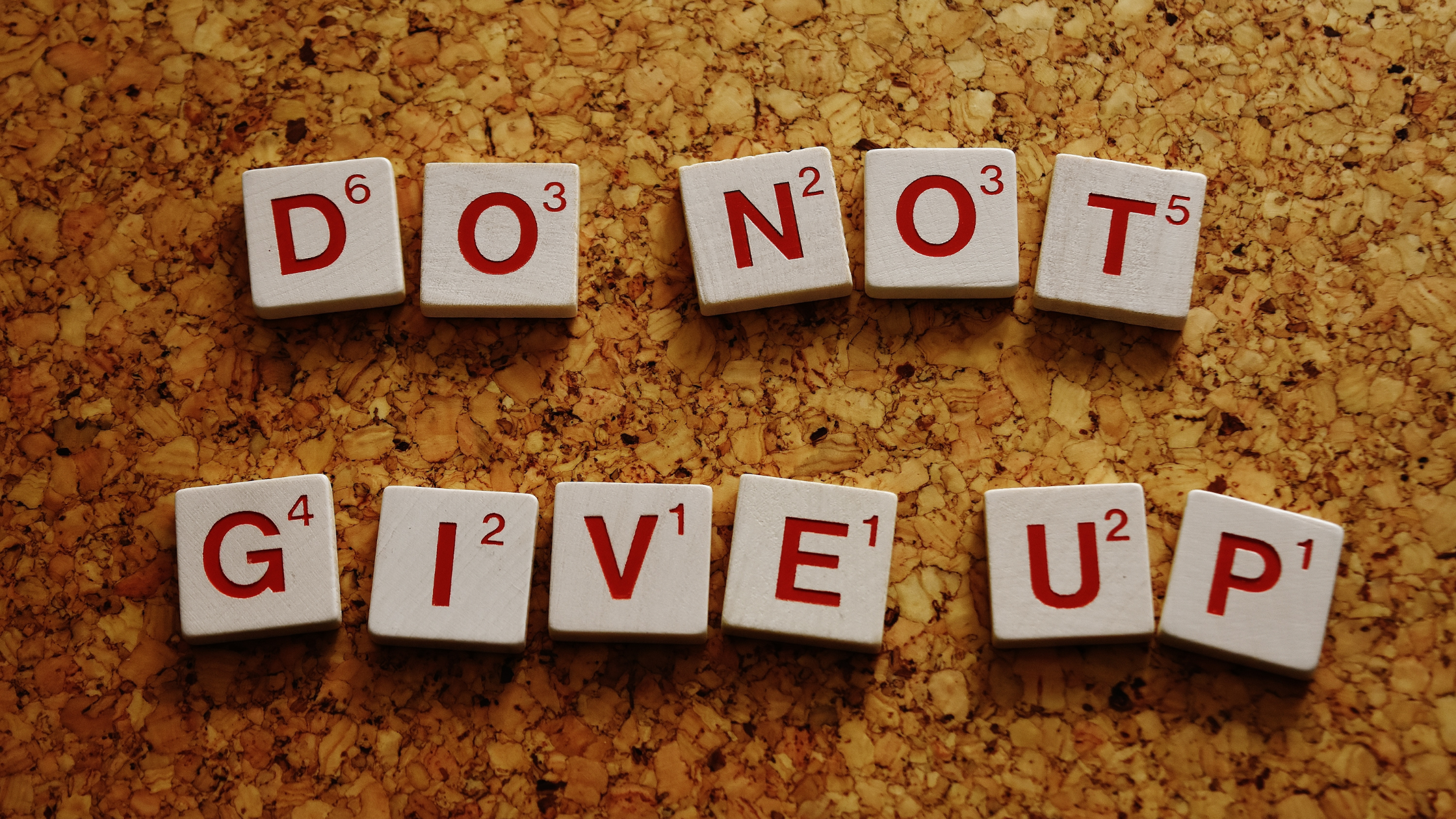
Is Courage All About Managing Fear?
Eleanor Roosevelt was married to US president Franklin Delano Roosevelt. She was the first lady of the United States during World War II, a dark time of fear, pain and suffering for millions of people.
She did her best to improve women's rights and make education more accessible. Her efforts were not always popular, but she kept at it. Authors Marie Benedict and Victoria Christopher Murray share her story and how she collaborated with civil rights activist Mary McLeod Bethune in The First Ladies (affiliate link).
What she did took a lot of courage. And she had this to say about it.
"You gain strength, courage, and confidence by every experience in which you really stop to look fear in the face. You are able to say to yourself, I lived through this horror. I can take the next thing that comes along."
As a freelance writer, not only do you have to overcome the fear of asking people to pay you for your work, you have to overcome the fear that your writing will expose who you really are.
The words you use, how you use them and how you go about interacting with clients says a lot about you. And it's easy to be afraid that other people will judge you. So it's important to sit down, examine those fears and expose them to sunlight. Nearly always, the things we're most afraid of when it comes to our writing are things that nobody else is worried about.
Courage is feeling the fear and doing the hard thing anyway.

Is Courage Being Willing To Be Vulnerable?
Brene Brown has done a lot of research on shame, vulnerability, and leadership. She's a professor, a lecturer, an author and a podcast host.
You can check out her TEDx talk here.
Brene says that ...
"Vulnerability sounds like truth and feels like courage. Truth and courage aren't always comfortable, but they're never weakness."
She's defining courage by what it is not. It is not weakness, and to her, by definition, courage is being vulnerable rather than hiding behind a false front.
Now, we could talk about what vulnerability means for a long time, especially when it comes to sharing, in your writing, what things are really like for you as a human being and a freelance business writer.
So as you're thinking about what you've just read, take some time to reflect and define what courage means to you, especially as a freelance writer who's growing their portfolio of work and list of clients.
Here's some questions that will help with that reflection.
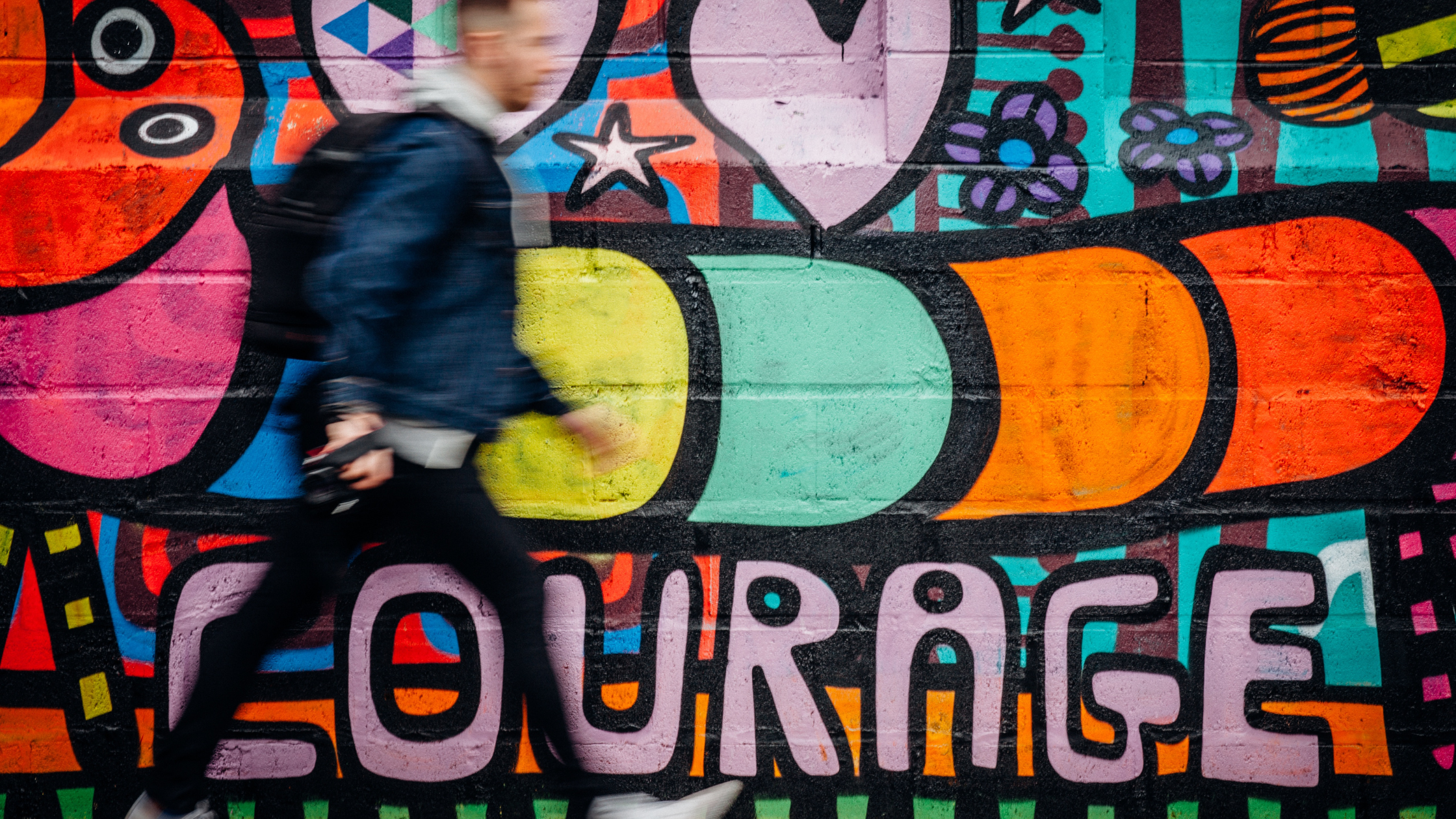
Six Courage Defining Questions
I have to confess, I don't have the answers to these questions that I'm going to ask you, but I think the questions are worth thinking about.
- What does being courageous mean to you?
Has there been a time when you've shown that particular sort of courage and have you ever seen someone else display that type of courage?
- Can you think of another example in today's world of entrepreneurs where someone has shown a different sort of courage?
What did they do and why was that courageous?
- Is there a difference between bravery and courage?
Are they the same thing? Are they different? Are they synonyms?
- Would you call it courage when we push ourselves outside of our comfort zones.
Why or why not?
- Is there such a thing as false courage?
Could what looks like courage actually be naivety or ignorance?
- Can you have courage without fear?
Mahatma Gandhi was a lawyer and a civil rights activist from India. He believed in non-violent protest and spent his life trying to help India break away from the British empire.
What he had to say about courage embodies the intersection of courage and how the development of courageous habits are vital to building a successful freelance writing career (and business).
"Your beliefs become your thought. Your thoughts become your words. Your words become your actions. Your actions become your habits. Your habits become your values, and your values become your destiny."
So can you develop habits that will make it much more likely you will be courageous? Especially when it comes to doing the things that scare you as a freelance writer?
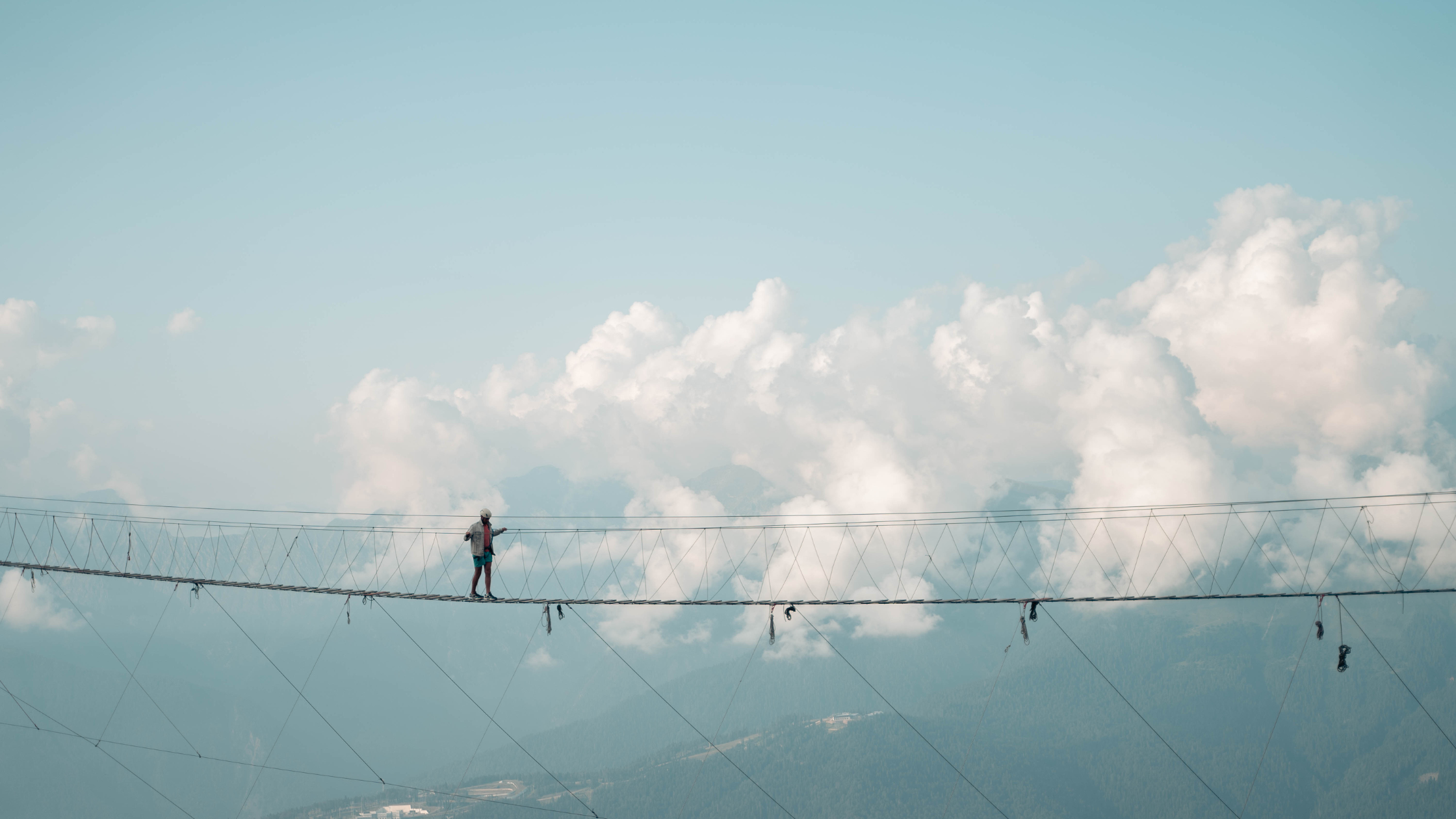
Tips For Building Courageous Habits
Here are some quick tips from James Clear's book, Atomic Habits, Tiny Changes, Remarkable Results, an Easy and Proven Way to Build Good Habits and Break Bad Ones (affiliate link).
James Clear defines a habit as "a routine or practice performed regularly, an automatic response to a specific situation". And he lays out four steps to creating a new positive habit.
But before he even starts talking about what those steps are, he makes it very clear that if we want to successfully develop new habits, we need to think of ourselves as who we will be in the future with this new habit rather than who we are right now.
For example, as a writer, I want to build an even stronger habit of writing high quality content more often. That means I need to think of myself as someone who enjoys the process of writing and likes helping people make that next little step towards successfully building their writing business.
It's important to think of myself like that. Otherwise, the thought of having to write something on a very regular basis can be a little bit (okay, a lot) overwhelming.
Next, James Clear says that you need to make the cues that trigger the habit obvious. Then make the act of creating the habit attractive. To do that, he uses this formula, "When Situation X arises, I will perform response Y".
For example, when I decided to start using more engaging stories in my writing, I started jotting down ideas ... on the back of receipts, scraps of paper, or into my phone ... it was a mess. And whenever I'd go looking for those scraps of paper, I couldn't find them.
So I established a new habit of capturing my idea in a draft email. And my habit trigger now is ... "after I've jotted down an idea (on my phone), I will open up a draft email in Active Campaign (the email tool I use), and I will jot down the story idea using just bullet points and thoughts.
No proper sentences allowed 😼.
It's really messy, but it means that my story idea has been captured and written down in five minutes or less. So when it comes time to actually writing the email, I'm not staring cross-eyed at a blank screen.
This habit has saved me SO much time!
The 3rd quick tip, James Clear shares is that you need to make working on your new habit easy to do. And every habit is context dependent. So you need to design your environment for success.
In order for me to create the right environment to generate those story ideas, I get away from my computer and I go to a cafe or the local library.
And I will invariably see or hear something along the way that triggers a thought that I can then turn into an idea for my story-based email.
And quick tip number four is, as James Clear says, to make the experience of working on your new habits satisfying. Because he says, "what is immediately rewarded is repeated".
I like getting out of the house, getting away from my home office, and sitting in a cafe eating lunch or sipping a hot drink. I'm rewarded by the ideas I get. And when I extend the habit to immediately writing those ideas down, then transferring them to a draft email, it's win win win all the way around.
I haven't had to stare at a blank screen for a long time. And what's not to like about that!
So there you have it.
It takes courage to grow into a confident, successful freelance writer. And I love it that there are things that you can do to help build habits that make those daily acts of courage easier to do. To the point where you don't have to think about them, you just do them.
And every time you do the actions that support those good habits, you're building something that's helpful, sustainable, and will ultimately boost your freelance writing career and business.
Please note that as an Amazon Associate, we earn from qualifying purchases. That means that if you click on one of our affiliate links (these are clearly identified) then we will receive a small commission, for which we thank you. It helps us keep on providing informative posts that help you build your freelance writing career and business.
If you're looking for a community that will help you develop good freelance writing habits, whether for building your writing portfolio, growing your client list or learning how to think about your writing as a business, the Boss Responses community could be the right one for you.

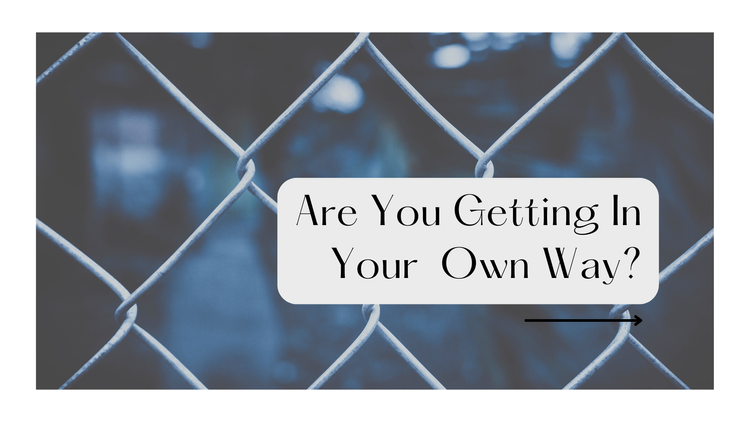
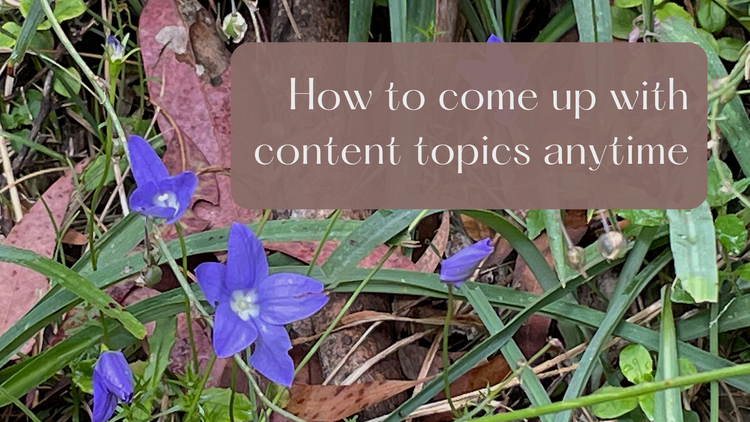
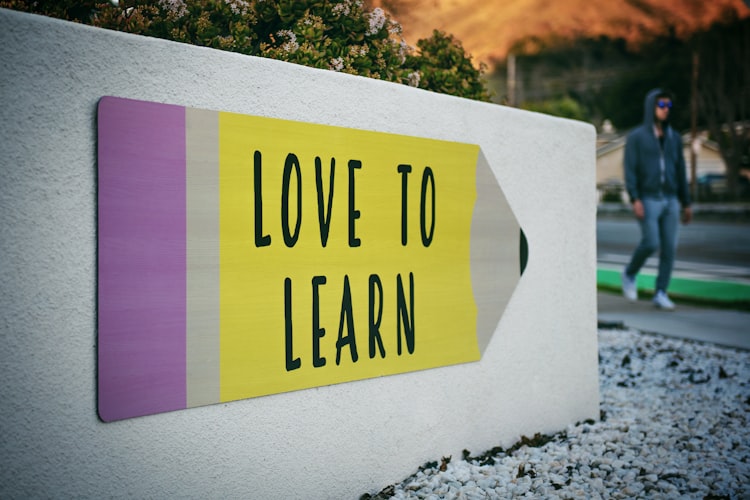

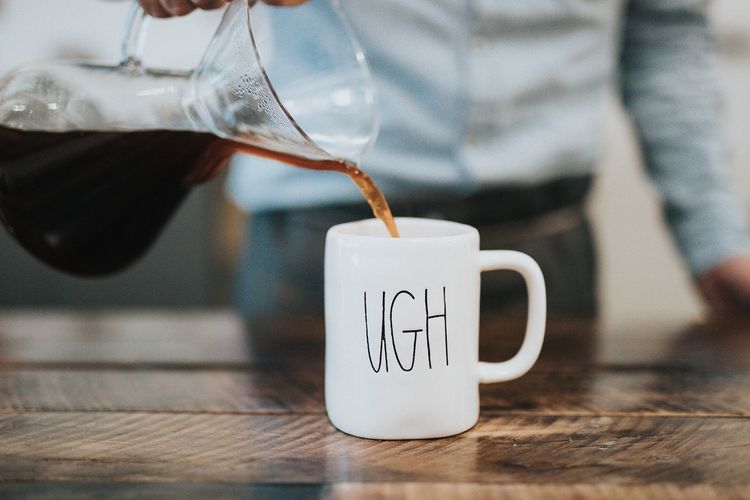
Member discussion